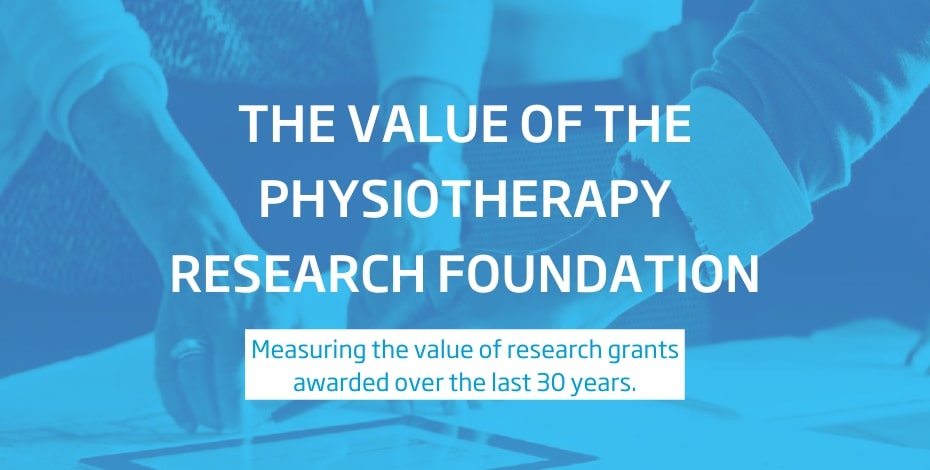
Measuring the value of the Physiotherapy Research Foundation

In 2020, the PRF engaged Survey Matters to evaluate the impact of PRF grant funding on research capacity, knowledge production and clinical practice in the physiotherapy profession over the past 30 years. PRF Grant Recipients were invited to complete an online survey. To supplement the surveys, a publications audit was undertaken of all peer reviewed papers published from the PRF funded research projects.
Key findings indicate that the PRF:
- has built research capacity and developed the careers of researchers
- contributed to the evidence base of the profession
- informed policy, clinical practice and education
- Enabled further research funding–$47.5 million, of which $8.6 million would not have been available without the support of the PRF. This suggests that for every $1 invested by the PRF, an additional $6.35 of further funding has been generated.
To read the summary document, please click here. For more information and to read the full report please click here.
Five case studies were also conducted to provide rich illustrations of the impacts of PRF grant funding. Interview subjects were asked about the impact of the PRF grant funding on their research, their career, on clinical practice and policy and on wider health outcomes. A combination of more experienced and early career stage researchers were interviewed, as well as research areas.
Please find below the research case studies.
Robyn Brennan, Seeding Grant, 2018.
Research Title: Can pre-and post-operative pelvic floor muscle training reduce pelvic floor dysfunction in patients undergoing gynaecological cancer treatment? A pilot randomised controlled trial.
Associate Professor Catherine Granger, Tagged Grant, 2008.
Research Title: Exercise rehabilitation for patients following surgery for lung cancer: a pilot randomised controlled trial.
Click here to watch the animation.
Ilana Ackerman, Seeding Grant, 2009.
Research Title: Equitable treatment of severe osteoarthritis: a population-based assessment of burden and barriers.
Associate Professor Peter Malliaras, Tagged Grant, 2005 and Seeding Grant, 2018.
Research Title: The effectiveness of hip adductor versus hip abductor strengthening for groin pain among young athletes (2005). Internet-based management of rotator cuff tendinopathy with remote physiotherapist led support: a pilot and feasibility randomised controlled trial (2018).
Click here to watch the animation.
Professor Catherine Dean, Seeding Grants, 1994 and 2000.
Research Title: Intersegmental coordination during reaching in seated subjects (1994). A randomised controlled trial of the efficacy of protocol to train sitting balance early after stroke (2000).
